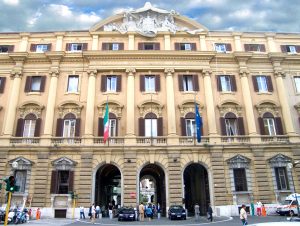The European Union has launched the Digital Europe Programme to support digitization in all the sectors of society and economy, inspired by the European Digital Decade.
The European Commission has adopted three work programmes with total funding of 1.98 billion euros. This set of work programmes includes strategic investments which will contribute to the achievement of the objectives set by the Commission in the European Digital Decade.
What about the 3 work programmes?
The main, around 1.38 billion euros, will focus on investment in artificial intelligence (AI), the cloud, the quantum communication infrastructure, advanced digital skills, and the broad use of digital technologies in the economy and society until the end of 2022.
In addition, the main work programme of the Digital Europe programme will include investments in the following activities:
- the establishment of common data areas to facilitate cross-border data sharing for businesses and the public sector,
- building a federated cloud-to-edge infrastructure and services, which is a backbone of digital solutions that will ensure secure data flows;
- creation of testing and testing facilities for AI-based solutions to promote the use of a reliable AI to address major societal challenges, including climate change and healthcare;
- establishment of a secure quantum communication infrastructure for the EU (EuroQCI), which will provide high protection against cyber attacks;
- establishing and delivering master’s degrees in leading advanced digital technologies to promote digital skills in Europe;
- the development, management and maintenance of digital services that support cross-border interoperability of solutions in support of public administrations (for example, European digital identity).
The Commission has added two specific work programmes:
- Financing in the field of cybersecurity, with a budget of 269 million euros until the end of 2022
- The creation and management of the network of European poles of digital innovation, with a budget of 329 million euros until the end of 2023
The Digital Europe Programme will create a network of European poles of digital innovation, which will offer access to technological experimentation and support for the digital transformation of private and public organizations across Europe.
What about other funds?
The Digital Europe Programme aims to strengthen European technological sovereignty and to bring digital solutions to the market for the benefit of citizens, public administrations, and businesses. The European Union with Digital Europe intends to spread technologies between citizens and businesses with a total budget of 7.5 billion euros in 7 years. These funds will complement other investments already made by the EU such as the programmes: Horizon Europe, Eu4health, InvestEU and the Just Transition Fund.





